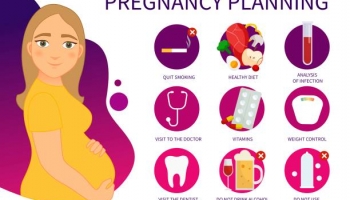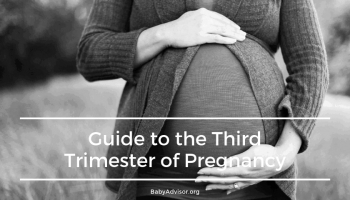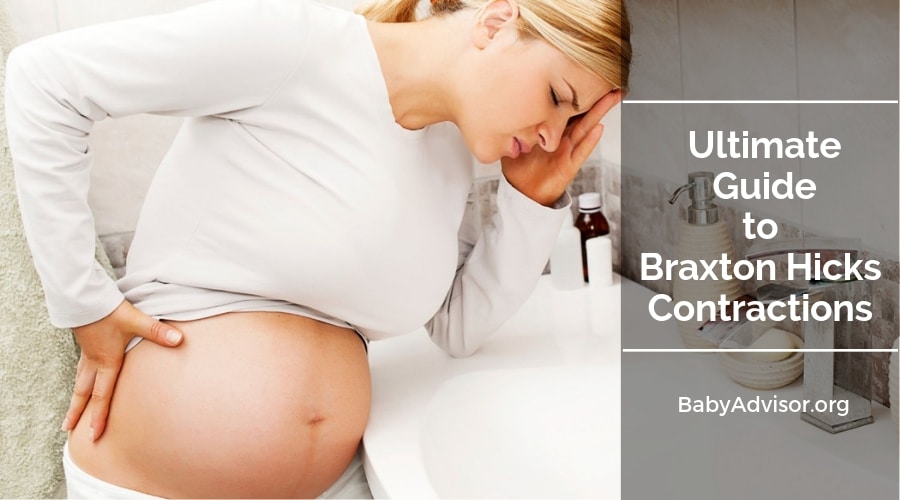
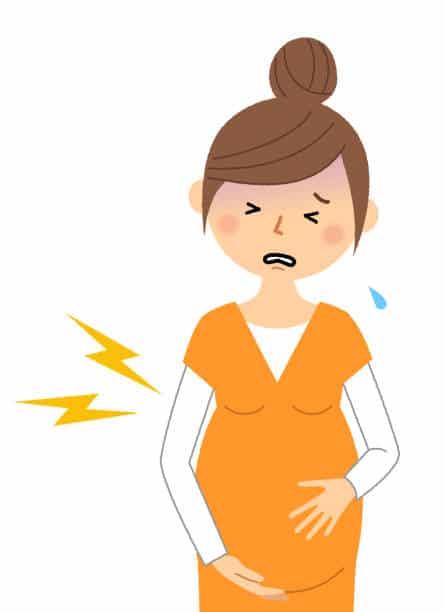
Don’t worry! Most pregnant women experience Braxton Hicks contractions from time to time, and it’s worth understanding what they are so that you can be more prepared when they start to take place.
What Are Braxton Hicks Contractions?
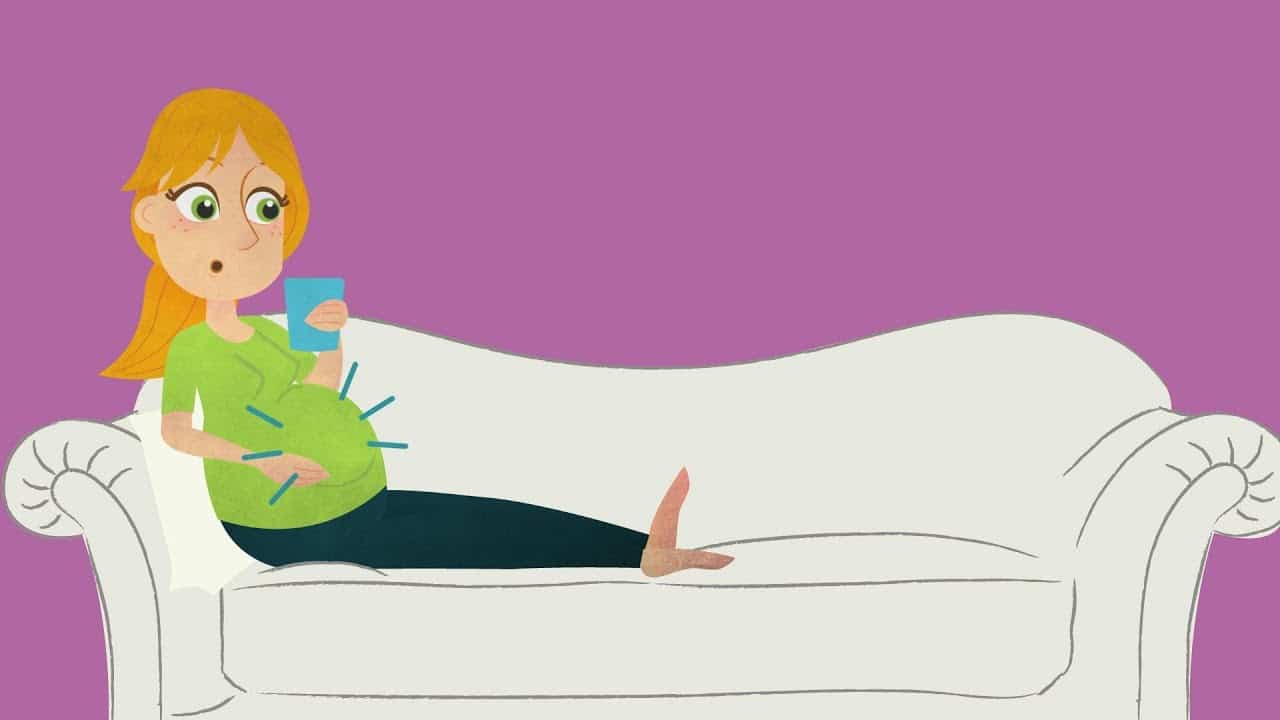
Braxton Hicks contractions are basically practicing contractions that work towards toning the uterus in preparation for real labor. They don’t cause changes to your cervix, so you don’t have to worry that they’ll cause premature labor. Braxton Hicks contractions are safe for your body.
It’s a good thing if you have them! It‘s a sign that your uterus is strong and preparing for labor. Some women don’t notice the Braxton Hicks contractions, especially in their first pregnancy.
Braxton Hicks don’t come at one time or have any pattern. Instead, they are random, but some activities, such as exercising, sex, orgasms, and dehydration can make them more frequent.
The Causes of Braxton Hicks Contractions
Typically, Braxton Hicks are considered just a normal part of pregnancy. Your pregnancy hormones send a signal message to your body to start slowly preparing for childbirth. Interestingly enough, there is no true scientific evidence to back up the belief that these contractions are meant to tone the uterine muscles.
You may not realize it, but your uterine muscles don’t contract just during labor. They contract during your menstrual cycle and even during sex. So, it’s a good chance that the Braxton Hicks contractions are just another normal uterine contractions.

There are some things that can increase the likelihood of these contractions, such as:
If you’re overdoing it, Braxton Hicks contractions can come from strenuous activity. That might mean it’s time to rest and binge watch TV shows on Netflix for the day.
UTIs can be common during pregnancy, and they can cause Braxton Hicks contractions. You’ll need to treat them with antibiotics.
This is the most common cause of Braxton Hicks contractions. Part of the brain tells your uterus to contract, and it’s the same area of the brain that tells you that you’re thirsty. When you’re dehydrated, it can activate the same area of the brain, leading to contractions. Muscle cramps are more likely when you’re dehydrated.
Sex and orgasms are a form of uterine contractions, so they can cause your body to have Braxton Hicks. You might notice that your belly is quite uncomfortable after sex, so get up and have a drink.
Are They Harmful?
You might be worried that having Braxton Hicks contractions could hurt your baby, but don’t worry! These contractions are your body’s normal way to prepare for labor and delivery. They’re like all those practice recitals before the big performance.
Even if you experience these contractions daily, they are NOT harmful to your baby or you!
When Do Braxton Hicks Start?
Some women can start experiencing these contractions as easily as six weeks pregnant, but most women don’t notice them until later in pregnancy. Braxton Hicks contractions typically start most noticeably around 20 weeks.
What Do Braxton Hicks Feel Like?

Everyone will describe Braxton Hicks differently than someone else, but Braxton Hicks start off as a mild tightening in the front of your uterus. Compared to menstrual cramps, these contractions are higher up in the stomach. You might even notice a contorted belly shape throughout them.
Most of these uterine contractions are irregular and lasts around 30 seconds at a time. You typically only experience 1 to 2 per hour, but the frequency may increase depending on your activity level.
- You notice a tightening or hardening of the uterus.
- You have a light, dull cramp high in your abdomen.
- You experience quick contractions that last only 30 seconds at a time.
- You realize the pain decreases in intensity with rest, fluids or time.
The Difference Between Braxton Hicks and Real Labor Contractions
In general, you’ll notice that Braxton Hicks contractions start to slow down and disappear when you change positions, move, or drink some water. True labor contractions don’t go away. They get stronger with time, intensifying, and they’ll become longer and closer together.
| Braxton Hicks | Real Contractions |
|---|---|
|
|
How to Relieve Braxton Hicks Contractions
There are a few things that you can do to help relieve and stop these contractions.
Sometimes, all you need is a bit of gentle movement to put a stop to these contractions. If walking around your house doesn’t stop them, it might be a sign that these are the real-deal labor contractions!
One of the things that increase Braxton Hicks is dehydration. So, getting enough fluids in your body can help to ease the symptoms. Pregnant mothers should try to drink at least 96 ounces of water. This is especially important if it’s on really hot days.
If you’ve been doing too much, strenuous activity can cause these contractions. Exercise is a good thing, so don’t feel as if you need to stop altogether. However, if you notice that they happen frequently while exercising, then you need to pick a less intense exercise. So, take it easy and lay down for a bit!
Relaxing almost always calms down the Braxton Hicks contractions. Take a nice, warm bath or listen to relaxing music. Drink a cup of hot tea. Stress isn’t a good thing for you or the baby, so take the time to wind down to relieve the discomfort of these contractions.
You might be surprised to find that you’re magnesium deficient. Many people are! Pregnancy increases your body’s need for magnesium, and a deficiency can lead to muscle spasms. If you want to work on decreasing these Braxton Hicks, magnesium oil or magnesium supplements are two good choices.
When to Call the Doctor
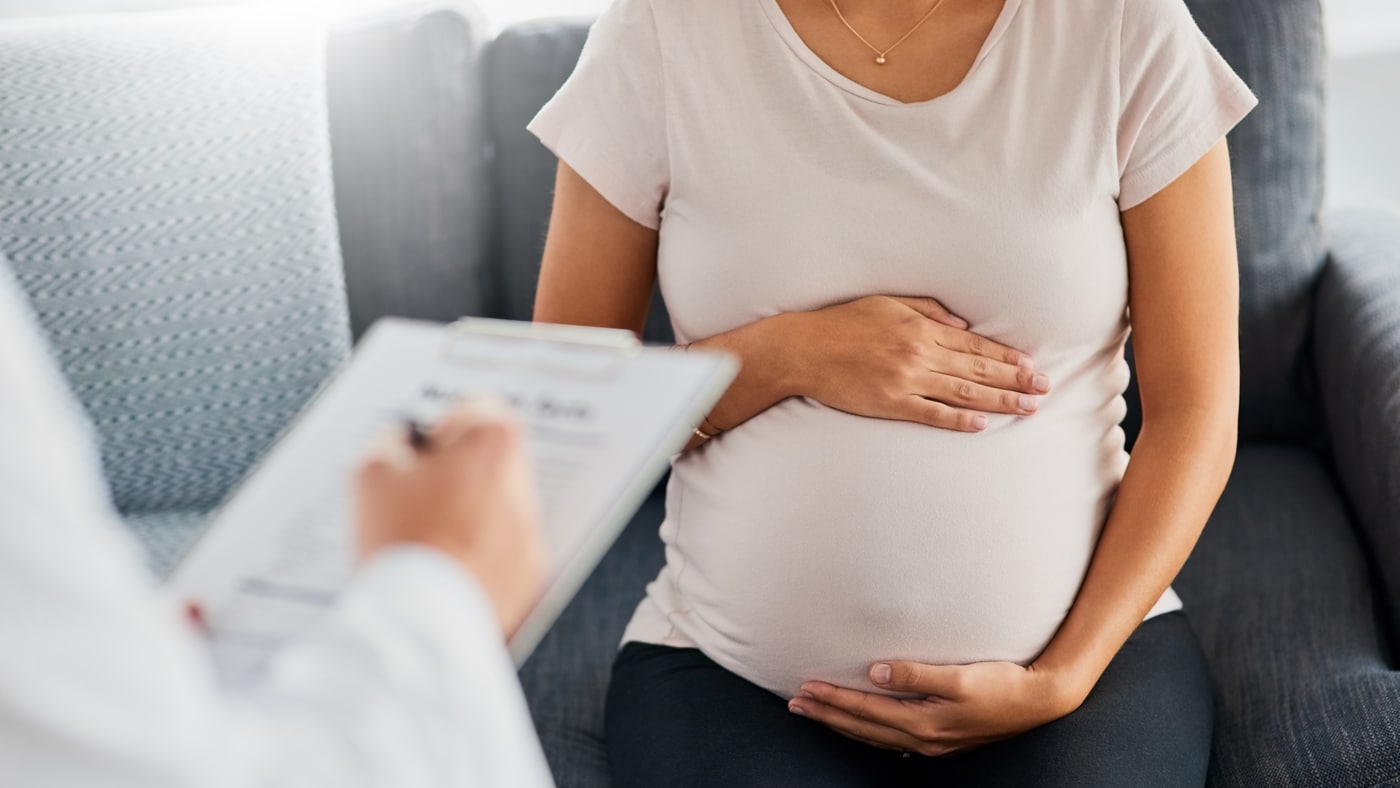
If you notice that the contractions are starting to intensify and getting more frequent. If you notice more than four in an hour, this could be true labor rather than just Braxton Hicks contractions. That’s when it’s time to call your midwife or OBGYN, especially if you aren’t 39 weeks pregnant.
Lucky for you, Braxton Hicks contractions are normal, so you shouldn’t be alarmed when you experience them. If they start to bother you, try walking around and drinking a glass of water, or lay down on your bed or couch for a while. They’ll go away, and if they don’t, it might be baby time!




